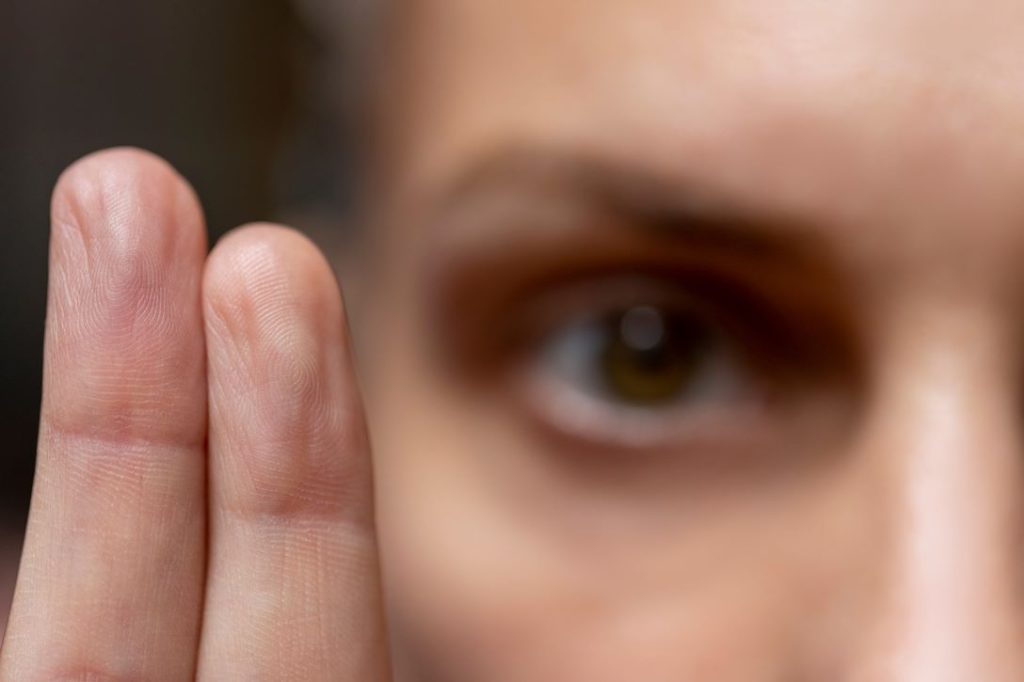Summary:
- Many Americans struggle with mental illness and the symptoms related to them. EMDR therapy can be effective in alleviating these symptoms.
- EMDR uses bilateral eye movements to stimulate the brain and reprogram unwanted or intrusive thoughts or memories.
- EMDR is effective in reducing symptoms of excessive worry or fear, substance abuse, intrusive memories, withdrawal, apathy, and suicidal thoughts.
Mental illness affects a large number of Americans. 20% of American adults will experience mental illness within a given year, and 50% will be diagnosed with a mental illness in their lifetime. Many side effects often accompany mental illness, such as feelings of depression, social withdrawal, and apathy. EMDR therapy can help alleviate many of these symptoms—but which ones, and how does it work?
At Therapy Utah, we know it can be tough experiencing mental illness without support or proper coping mechanisms. Our therapists focus on the healing process and are trained in EMDR, so we’ve seen firsthand how useful it can be in this process. Below, we’ll tell you more about the many uses of this technique.
See Also:

What is EMDR Therapy?
Eye-Movement Desensitized and Reprocessing (EMDR) is a technique used by licensed therapists to reprogram memories of traumatic events. This is done by having a client recall traumatic experiences that produce negative thoughts, feelings, or behaviors—then using physical stimuli to change the way these experiences are stored as memories in the brain.
The physical aspect of EMDR involves bilateral eye movements, guided by the therapist, that stimulate both sides of the brain. During this process, memories associated with traumatic events are altered and can become less vivid.
Mental Illnesses EMDR Can Treat
Although EMDR is most recognized for treating post-traumatic stress disorder (PTSD), people suffering from other mental illnesses can benefit from this treatment. EMDR has also shown to be effective in treating:
- Anxiety
- Phobias
- Addictions
- Panic attacks
- Body dysmorphia
- Personality disorders
- Complicated grief
- Depression
- Physical and sexual abuse
- Obsessive-compulsive disorders (OCD)
Mental Illness Symptoms EMDR Can Help With
1. Excessive Worry or Fear
Excessive worrying or fear can be debilitating to some, and is a common symptom of many mental illnesses, including anxiety disorders and phobias. EMDR can help treat worry and fear by taking a step back and reflecting on how or why the fear persists.
Recognizing triggers that enable fear or worry is the first step. EMDR allows fear or worry to be treated by revisiting the memory causing those feelings and envisioning how it is you would like to feel or react to those triggers.
2. Intrusive Memories
EMDR can treat intrusive memories that can present themselves in flashbacks or nightmares of a traumatic event. Sometimes, distressing memories can become overwhelming and cause a feeling of being stuck in that experience. EMDR resolves this feeling by processing the sensations and thoughts associated with problematic memories in a way that moves them to the past.
3. Drug or Alcohol Abuse
Substance use disorders can commonly appear as coping mechanisms for individuals who have gone through trauma. EMDR can be beneficial for treating substance abuse issues by desensitizing triggers that promote the resulting behavior and reinforcing positive emotional states. Additionally, EMDR is helpful for treating substance use issues because it is able to resolve the unprocessed trauma at the root of the behavior.

4. Troubles with Daily Life
Mental illnesses can interfere with one’s day-to-day life, activities, or tasks. A person struggling with mental illness might feel extremely productive one day and might struggle to get out of bed the next. EMDR assists in overcoming these drawbacks by reprogramming the way one thinks about the specific events that have led to their decreased motivation or productivity. Once people no longer associate certain tasks with upsetting memories, they generally find those tasks easier to perform again.
5. Withdrawal from Loved Ones
A common symptom of someone experiencing mental illness is withdrawal from friends and family. This symptom is commonly seen in people experiencing depression, anxiety, or PTSD. Furthermore, it can impact not only the person suffering from mental illness, but those around them. EMDR therapy helps by resolving the inner conflicts associated with mental illness and reprocesses how the brain views these situations. Resolving those internal conflicts makes it easier to connect with others in meaningful ways.
6. Apathy
Sometimes symptoms of mental illness can lead to dissatisfaction of activities that once caused joy. Apathy usually presents itself as not feeling or showing any emotion for prior interests, and leads to dissatisfaction or lack of motivation. These factors can affect one’s ability to enjoy their life.
EMDR can help with apathy by reprocessing emotions that have been numbed. By reprocessing the emotions and memories that have led to apathy, one can begin to find joy in what they love about life again.
7. Suicidal Thoughts
With suicide being the 10th leading cause of death in the United States, its important to recognize that this symptom of mental illness is common and can be treated to prevent it. Those experiencing mental illnesses such as depression or PTSD are at a higher risk of suicidal thoughts, but EMDR can help navigate away from suicidal ideations.
EMDR has shown to be useful in reducing suicidal ideations as it allows individuals to better manage their mental health and increase self-efficacy. You can contact Therapy Utah for same-day crisis sessions for suicidal ideations. Additionally, if you or anyone you know is experiencing suicidal thoughts, you can call the Suicide & Crisis Lifeline at 988, or speak to someone through their 24-hour online chat.

Overcome Trauma With EMDR Therapy
Living with mental illness can be taxing. Our experts at Therapy Utah are licensed and trained in EMDR to assist in reprocessing trauma or other symptoms of mental illnesses. If you’re looking to reprogram the way you see and deal with the world, contact us to learn more about the right program for you.










